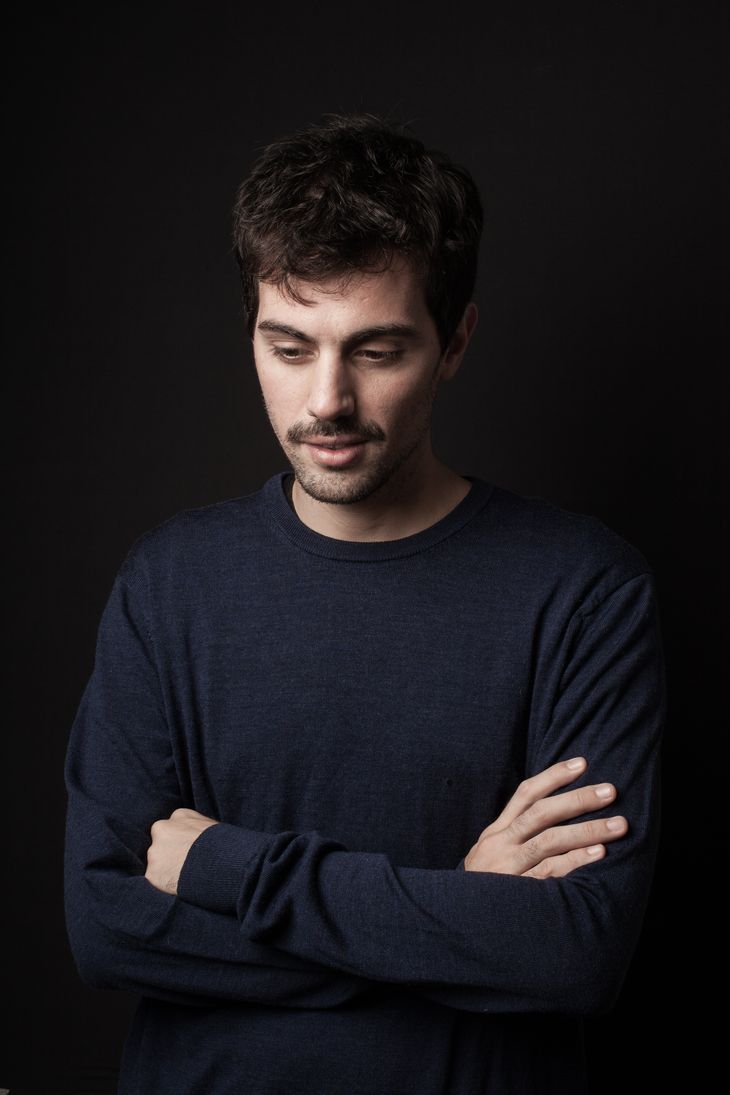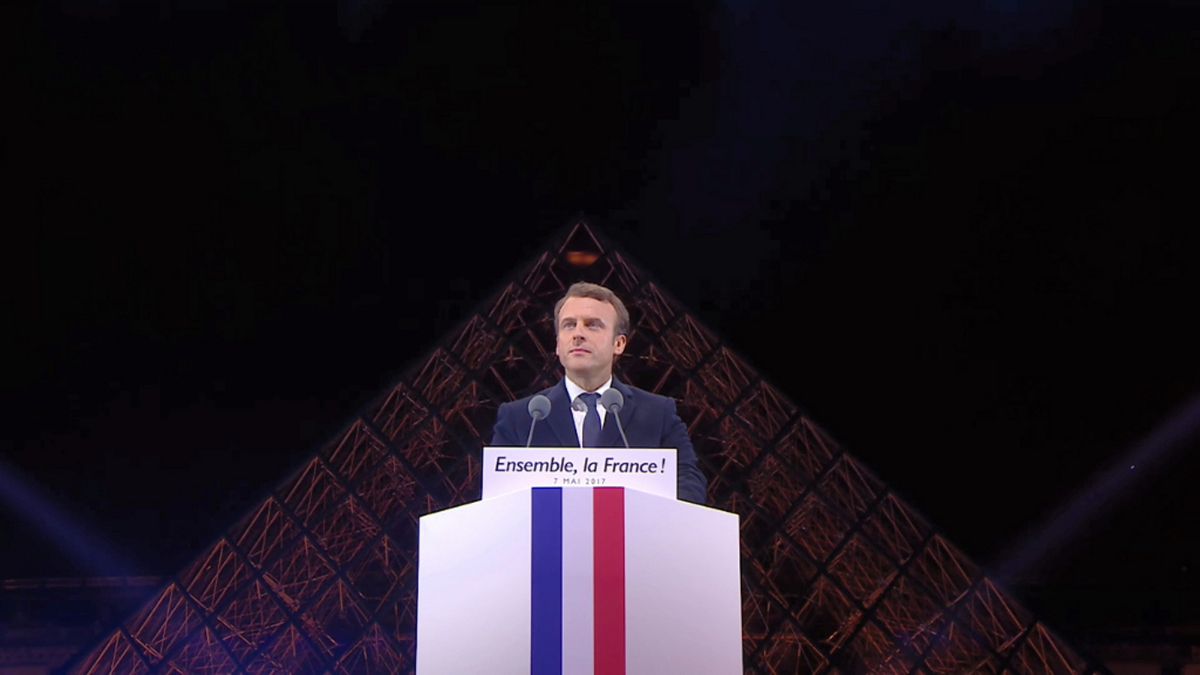“Author cinema is very uncomfortable. Comparing this cinema with mainstream cinema is like comparing poetry with a best seller. It requires a different kind of patience, a different kind of distribution, a different kind of audience.”says Francisco Lezamadirector of “A strange movement”, short film that won the Golden Bear at the last Berlinale and is in the running for an Oscar. This short will be screened alongside two previous works by the director, “Dear Renzo” and “The Bride of Frankenstein” (these two co-directed with Agustina Gálvez), at the Malba in September.
The shorts portray Argentina’s progressive economic crisis, the obsession with the dollar and the situation of young people. We spoke with Lezama.
Journalist: Where does this interest in the themes that are reiterated in your shorts come from?
Francisco Lezama: When I started the series of shorts that are about to be released, I was working at the MALBA and the idea was to be able to make films with the elements we had at hand, based on observing the locations, the neighborhood, without having to move around too much. In the Barrio Parque area there were several apartments or rooms in houses that were rented to foreigners via AirBnB; and the exchange of pesos for dollars was a constant. I began to work on the script for the first short based on young, somewhat lost characters, who worked like saplings: translating the tourists’ English into Spanish. The ideas were emerging from observing these passes, and these translations. The more we observed, the more unlikely and comical the situations became. In the world of tourism in Buenos Aires there were many keys to comedy. A civilized, protocolary terrain like that of tourism in rich areas could collide with the sloppiness of eccentric, clumsy or irresponsible employees.
Francisco Lezama – Director’s Shot.jpg
Francisco Lezama, director of “Dear Renzo”, “Bride of Frankenstein” and “A Strange Movement”.
Q: What other issues appear in your films?
FL: I am not only interested in the cult of the dollar or the middle and upper-middle class’s obsession with the English language, but also in the obsession that some people may have with telling themselves stories “like in an American movie.” We are completely steeped in classic Hollywood narratives, and that was something I wanted to explore with these comedies. In a strange move, a security guard manages to foresee a currency run, gets fired, and buys dollars with her severance pay. With that remainder, that “peace of mind,” she has free time and so, she begins to fantasize about a kind of American romantic comedy with a little tree that clearly cannot afford to buy dollars and is not so calm. I was interested in the idea of telling an impossible romantic comedy between those who can buy dollars and those who cannot.
Q: Your films have been screened at several festivals and won the top prize in Berlin. What attracts the world to our current situation?
FL: I think that the shorts are a cross between a comedy of errors and another type of cinema that is more closely tied to reality. This combination may be tempting, because it is a difficult line to draw (it can go really wrong). For example, if you watch the three shorts side by side you can see how the Argentine peso loses value over time. On the other hand, I think that the economic case in Argentina is already well-known, and in some countries where inflation is starting to occur, there may be a bit more interest in these issues.
Q: What is the path of festivals vs. exhibition and permanence in theaters at a local level?
FL: Exhibition is an issue that is often neglected, not only in Argentina, but in the world. There is a vast annual production of valuable films but very few theaters that can give continuity to these films. Auteur cinema needs other rhythms of distribution, other patience, another type of word-of-mouth recommendation. Without the economic means and celebrities, whether local stars or Hollywood blockbusters, independent cinema requires another distribution system. Just as poetry circulates differently than best-sellers, auteur or independent cinema requires another system. On the other hand, the cost of movie tickets is very expensive.
Q: How do you see cinema in Argentina at the moment?
FL: I see it badly. Between inflation and the policies that have been carried out at INCAA, film production has come to a standstill. One thing is to organize, audit, correct, and another very different thing is to paralyze an institute that was created with noble purposes. It gives the impression that not only is there no interest in auteur cinema (artistic, made with humanity) but that it is very uncomfortable. I think this has to do with a polarized way of presenting the world that is very useful for governing. Black and white stories are created: “either you are with me or you are an enemy”, “either you adhere or you are immoral”. There is no kind of contemplation for the fragile or the ambiguous. Everything has to be forceful. At the same time, by valuing (and up to that point) only the production of blockbuster films that are completely detached from thought or the record of reality, a line similar to that of some Italian films prior to neorealism is marked. Italian neorealism emerged after World War II and filmed “what is happening.” The paradox is that it was extremely successful at the box office and worldwide. The films that were made in Italy before neorealism were in many cases imitations of generic American films. A film institute like INCAA was partly designed to allow national, non-nationalist films to be made. That is, films that challenge Argentine viewers in their own questions and ambiguities. Defending this type of more human films is not “left-wing populism,” but common sense.
Q: How does an Argentine filmmaker support himself?
FL: As no two filmmakers are the same, no two livelihoods are the same. I think that in many cases film has become a discipline for people with money, because it requires a lot of time and dedication and the effort is not always well paid. In the cases I know (generally independent filmmakers), the livelihood comes in part from film sales (although the platforms pay less and less), development funds (although they tend to be given to filmmakers with experience), and parallel jobs (workshops, classes, consulting, script work, etc.). There are also many filmmakers who have other jobs unrelated to film and there are other filmmakers who live off of advertising, filming series or making films on commission.
Source: Ambito
I am an author and journalist who has worked in the entertainment industry for over a decade. I currently work as a news editor at a major news website, and my focus is on covering the latest trends in entertainment. I also write occasional pieces for other outlets, and have authored two books about the entertainment industry.




